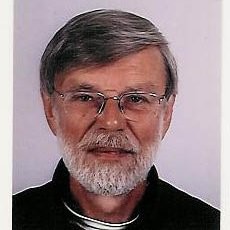4338
Scientific Program

Evert Ketting
Faculty Guttmacher Institute
Title: Current status of sexuality education in Europe
Biography:
Evert Ketting is an international specialist in sexual and reproductive health and rights. Since 1989, he has worked as an international expert for various organizations and governmental agencies—including the International Planned Parenthood Federation, European Union, World Health Organization (WHO), United Nations Population Fund, United Nations Educational, Scientific and Cultural Organization (UNESCO), United Nations Children’s Fund (UNICEF) and the World Bank—in more than 25 countries in Eastern Europe, Central Asia and Africa. Currently, he is also a senior researcher at Radboud University Nijmegen Medical Centre, where he has worked on a UNESCO project on the cost and cost-effectiveness of sexuality education in six countries in Asia, Africa and Europe, among others. In the past few years, he played a leading role in the WHO Regional Office for Europe and the Federal Centre for Health Education’s initiative to develop “Standards for Sexuality Education in Europe” (2010) and the related “Guidance for Implementation” (2013). Dr. Ketting obtained his PhD in Social Sciences from Utrecht University.
Abstract
School sexuality education has a long history in Europe, starting in Sweden, where it became a mandatory teaching subject in 1954. Since then it was also adopted in most other European countries; first in Western and Northern Europe and later on also in several Southern and Eastern European countries. In 2008, the German Federal Health Education Centre (BZgA, a WHO collaborating centre), initiated closer international collaboration in the field of sexuality education at the European level. To this end, it organised a “European Expert Group on Sexuality Education”, which is still active in improving, promoting, and in exchanging information and experience in this field. Since 2010, this expert group has released various documents on the subject, the influential “Standards for Sexuality Education in Europe (2010)”, that has been used in many European countries for the development of sexuality education curricula and for integrating the subject in school educational programmes. In 2016, in collaboration with the European Network of IPPF, BZgA initiated a study on the current status of sexuality education in Europe (including Central Asia), in which a representative selection of 24 European (and Central Asian) countries participated. The initial results of this unique study will be presented at an international conference on sexuality education in Europe, in Berlin in May 2017, and the full results are scheduled for publication a few months later. The study provides a detailed assessment of the current status of sexuality education in Europe. It is now a mandatory teaching subject in schools in the vast majority of European countries. Unlike in other world regions, the teaching in about half of the European countries has a comprehensive (or holistic) character, is fully integrated and spread out throughout school curricula, starts at young ages and lasts for several years, is based on human rights, and starts from a positive approach to sexuality.
- Reproductive Endocrinology
- Cryopreservation
- Reproductive Physiology and Metabolic Disorders
- Assisted Reproductive Technology (ART)
- Reproductive Medicine & Sexually Transmitted Diseases
- Reproductive Immunology
- Obstetrics & Obstetricians
- Fertility Awareness & Human Reproductive Cancers
- Infertility Drugs and related risk
- Polycystic Ovary Syndrome (PCOS)
- Latest Innovation in Gynaecological Pathology
- Reproductive Health & Hazards
- Oncology & Its subdivision
- Reproductive Toxicology

